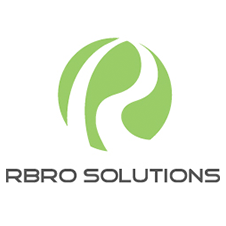RBRO Solutions: Journey to the cloud
Over the past year, firms have experienced increased pressure to meet expanded work-from-anywhere demands. For many organizations, effective collaboration and operational efficiency ranked high on their list of pressing concerns. In a quest to improve agility, achieve better cost control, overcome infrastructure limitations, and maintain strong team connections, cloud services – once a far-off plan – have become a necessary tactical step. Indeed, the market is pivoting to adapt to ever-changing Covid-19 measures. The former central office model may have become an eclectic smattering of locations indicated on a Google Map. Home offices are now the norm. Organizational IT groups will continue to face the daunting task of managing and deploying applications in a very different way. In this new reality, they must consider a new priority. Rather than infrastructure management, it is to increase focus on how to connect users to technology and processes that will enable ongoing client service, strong organizational culture and interoperability with industry partners.
Is moving to the cloud right for you?
For example, for over half of respondents to ILTA’s 2020 technology, iManage is the dominant document management system – and iManage Cloud delivers work product management capabilities with security features that are costly to replicate on-premises.
The truth is that cloud (in this case, SaaS) is the direction the market is going in. For some, change is coming faster and faster. The cloud allows organizations to move with that change in a much more efficient manner. For others, however, transitioning is still a distant goal. Despite the flexibility cloud offers, 46% of ILTA survey respondents said the primary location of their libraries was on-premises. The move isn’t easy, especially for firms with clients that require an on-premises environment. But even this is changing. Clients that once required their legal services content storage to be maintained on-premises are now themselves looking to offload infrastructure management as they seek to streamline their operations.
At the same time, even with a significant focus on the cloud, we at RBRO find ourselves migrating a small number of customers into on-premises iManage environments to support their specific needs. This is a key value of the system; even as the market is increasingly moving towards cloud services, the solution continues to ensure that it can meet its clients’ needs in both contexts. At RBRO we’ve continued with the same approach. Our goal is to facilitate our client’s journey. We recognize that the journey looks different from firm to firm, and we provide the consulting services and technology that will help firms to get the best value from their content regardless.
Challenges migrating to the cloud.
Systems that have been around for a long time invariably have data issues. Network folders with long-forgotten security assignments, or legacy document management systems with orphaned records that point to files no longer on disk, are realities. Networks are filled with poorly organized content that served the user at the time, but which is now unintelligible to others or missing client/matter references. All of this makes it hard for organizations to feel like they can succeed in moving their data to a new system or environment. The reality is these challenges are common. We’ve been fortunate to provide document management consulting and content migration services to firms that range from the largest in the world to those with just a few users. In all cases, preparation is critical. At RBRO our mantra is ‘know your data’. To help us live up to this mantra, we’ve developed key processes and technology that ensure we have the best view of customer data to make the right decisions about how to migrate content into a system like iManage effectively and accurately. We help organizations both to look into their content-related processes and find ways to collaborate more effectively around this critical information.
It’s also imperative to set realistic goals when dealing with old data. Flexibility is good – however, too much flexibility in data mapping, routing and transformation can lead to complex processes that are difficult to govern. In our experience, taking the simple route when embarking on the data transformation or consolidation process, and limiting the number of voices that can dictate your conversion’s complexity, will reduce hurdles. An overly complicated process makes error management even more difficult, increases costs and limits success.
For RBRO, a significant contributor to a successful migration is also the collaborative approach with customers. Successful projects are never simply farmed out to your chosen partner. Instead, the project must combine customer internal knowledge and strengths with our expertise, developed over more than 17 years. Expectations are well managed, and with strong decision-makers on the customer side, we move forward quickly with confidence.
Managing expectations
There are a number of crucial considerations.
- There is a reality to your data, and the partner you choose should do their best to work with you on shaping that data to your needs.
- It’s important to temper expectations of the result with the effort and cost you want to employ. Ensure that you and your selected partner ‘know your data’ so there are no surprises.
- Build in an effective method of providing clarity to leadership about what’s happening at any stage of the migration. It’s important to build confidence around the integrity of the process. Reports that detail success and provide information about failures empower both technical and non-technical participants to make decisions about next steps.
- Effective project management is crucial, as are strong collaboration channels between clients, partners and vendors. Change can be simplified, but there’s no question that there’s also a significant amount of complexity in the process. Don’t underestimate the need to have a strong project manager in place, either internally or through your partner. This will ensure all participants are in alignment throughout the process. Our goal is always to work as ‘one team’ with our clients and vendors such as iManage.
Looking forward
Things will change for your users. Their lives and experiences will not be the same after an effective conversion. Trying to comfort users by stating ‘there won’t be much difference’ may have the short-term benefit of securing cooperation, but it will result in longer-term pain of poor or grudging adoption. At the end of a project, the worst outcome is end users saying things like “I thought they said ….” At that point, you’ve lost the trust and positioned your next project for incredible opposition. The best response? “They told me I’d have a few challenges in this area, but overall, I’m very pleased with how this change happened, I know how to move forward, and I really love this new way of working.”
This article was taken from Briefing February 2020: Hybrid powers. Read the full magazine here.



